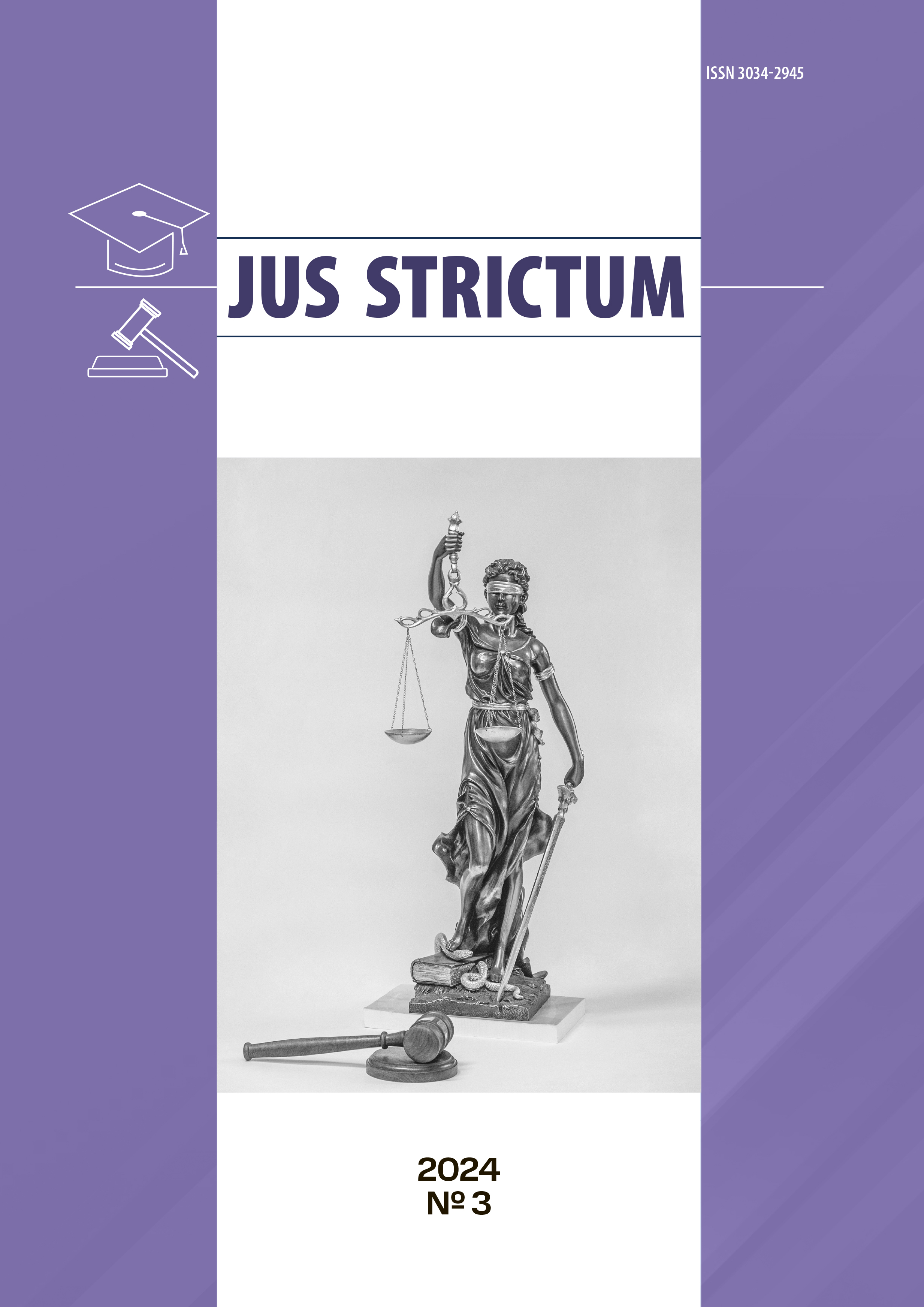Legal personality of officials of the prosecution authorities in criminal proceedings
- Authors: Korchagina K.A.1
-
Affiliations:
- Togliatti State University
- Issue: No 3 (2024)
- Pages: 12-19
- Section: Articles
- URL: https://vektornaukipravo.ru/jour/article/view/648
- DOI: https://doi.org/10.18323/3034-2945-2024-3-58-2
- ID: 648
Cite item
Full Text
Abstract
In modern criminal procedural science, there is no doubt that the prosecutor and subordinate prosecution officers are participants in criminal proceedings. Separate disputes arise only when discussing the issue of classifying the prosecutor as a party to the prosecution. At the same time, the role and functions of officials of the prosecution authorities in criminal proceedings are not so obvious and unambiguous. Although Part 1 of Article 37 of the Code of Criminal Procedure of the Russian Federation assigns the functions of supervision and criminal prosecution to the prosecutor, the heads of the prosecution authorities and the employees subordinate to them do not always pursue these goals, and officials of the prosecution authorities do not always act in the status of a prosecutor or public prosecutor. Analyzing the current norms of criminal procedural legislation and comparing them with the actual legal personality of prosecutorial employees entering into relations with participants in criminal proceedings, the author substantiates the conclusion about the necessity to distinguish between two fundamentally different legal statuses of the prosecution officials. The first one is the official status of the prosecutor as the head of the prosecution authority, allowing him to exercise state powers to supervise the preliminary investigation bodies without accepting the additional procedural status of a participant in legal proceedings. The second one is the criminal procedural status acquired by an official of the prosecution authority, including a prosecutor, for a certain period (stage, phase) of criminal proceedings to carry out one of two procedural functions – criminal prosecution (acquires the status of a public prosecutor) or law enforcement function, protection of the interests of an individual, society and the state (acquires the status of other prosecutor or a prosecutor representative).
About the authors
Kristina Aleksandrovna Korchagina
Togliatti State University
Author for correspondence.
Email: kris.alexandrovna1992@yandex.ru
ORCID iD: 0000-0001-8770-1173
senior lecturer of Chair “Criminal Law and Procedure”
Russian Federation, 445020, Togliatti, Belorusskaya Street, 14References
- Trukhachev V.V., Akhmedov U.N. Functions and the prosecutors powers in criminal proceedings and their reflection in the procedural status of the prosecutor. Vestnik Voronezhskogo instituta MVD Rossii, 2020, no. 1, pp. 195–202. EDN: SFYNOH.
- Manova N.S. The model of the prosecutor’s activities in criminal proceedings: key challenges and opportunities for reform. Pravovaya paradigma, 2022, vol. 21, no. 2, pp. 43–50. doi: 10.15688/lc.jvolsu.2022.2.6.
- Amirbekov K.I. The powers of the prosecutor to prosecute in the judicial stages of criminal proceedings. Vestnik Universiteta prokuratury Rossiyskoy Federatsii, 2021, no. 6, pp. 25–32. EDN: HZBZKK.
- Churikova A.Yu. Pravovaya model deyatelnosti prokurora v rossiyskom i zarubezhnom ugolovnom protsesse [The Legal Model of the Prosecutor’s Activity in the Russian and Foreign Fishing Process]. Moscow, Triumf Publ., 2022. 285 p.
- Galchenko A.I. Functions of the procuracy of the Russian Federation: disputable issues. Lex russica (Russkiy zakon), 2014, vol. 96, no. 11, pp. 1346–1359. EDN: TCRHOP.
- Kamchatov K.V., Timoshenko A.A. The activities of the prosecutor in criminal proceedings: assessment of effectiveness. Rossiyskaya yustitsiya, 2017, no. 11, pp. 29–33. EDN: ZQLUAH.
- Tatyanina L.G. Activities of the prosecutor in the criminal process of Russia. Vestnik Sibirskogo yuridicheskogo instituta MVD Rossii, 2010, no. 3, pp. 30–33. EDN: QHXNQT.
- Lazareva V.A., Vershinina S.I. On the procedural status of officials of the prosecutor’s office participating in criminal proceedings. Pravovaya paradigma, 2022, vol. 21, no. 2, pp. 51–59. doi: 10.15688/lc.jvolsu.2022.2.7.
- Apostolova N.N. Public prosecutor’s supervision and preliminary investigation as a guarantee of the rights and freedoms of the individual. Rossiyskaya yustitsiya, 2017, no. 3, pp. 53–56. EDN: YFPXUR.
- Shobukhin V.Yu. Prosecution law – branch of the Russian law. Zakonnost, 2009, no. 7, pp. 43–45. EDN: KXFMFT.
- Biktagirov R.T. Public prosecution institution in the mechanism of the Russian state. Grazhdanin. Vybory. Vlast, 2016, no. 2-3, pp. 143–158. EDN: ZSGZYL.
- Berezovskaya S.G. Essence and main characteristics of legal relations in the sphere of procuracy supervision. Vestnik Universiteta prokuratury Rossiyskoy Federatsii, 2023, no. 3, pp. 122–131. EDN: OLPYUO.
- Ryabtsev V.P., Alekseev A.I., Bessarabov V.G. The role and place of the prosecutor’s office in the system of state institutions of the Russian Federation. Vestnik Universiteta prokuratury Rossiyskoy Federatsii, 2023, no. 3, pp. 202–211. EDN: WURYMG.
- Vinokurov A.Yu. Amendments to the Constitution of the Russian Federation within the framework of consolidation of status provisions on the prosecutor’s office. Konstitutsionnoe i munitsipalnoe pravo, 2021, no. 4, pp. 31–34. EDN: LGJUEQ.
- Kryukov V.F. Ugolovnoe presledovanie v sudebnom proizvodstve: ugolovno-protsessualnye i nadzornye aspekty deyatelnosti prokurora [Criminal prosecution in judicial proceedings: criminal procedural and supervisory aspects of the prosecutor’s activities]. Kursk, 2010. 411 p.
- Spesivov N.V. Problems of inplementation by the prosecutor of the function of criminal prosecution. Zakonnost, 2024, no. 2, pp. 13–17. EDN: LPFFYY.
Supplementary files







